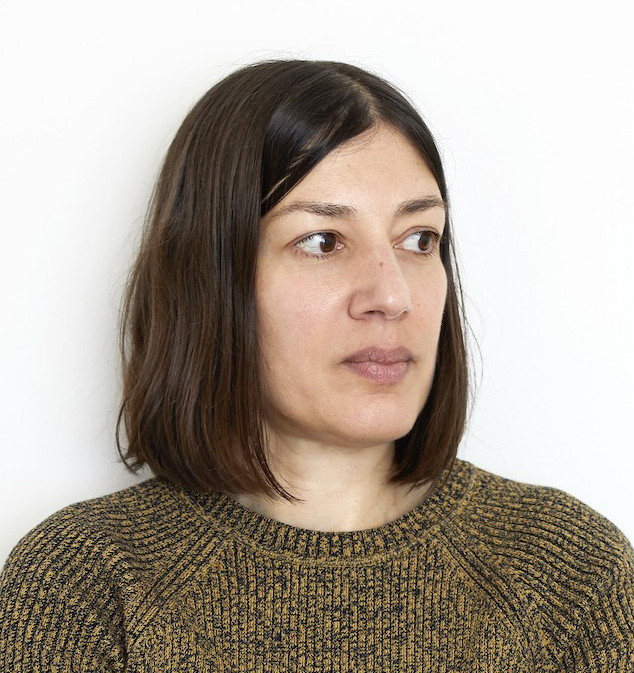Sustainability rules at 2021 RSA Student Design Awards
Winners of ‘A New Leaf' competition – part of the 2021 RSA Student Design Awards – include a biodegradable plant pot, a sustainable timber furniture range, and a product made from recycled tamarind shells

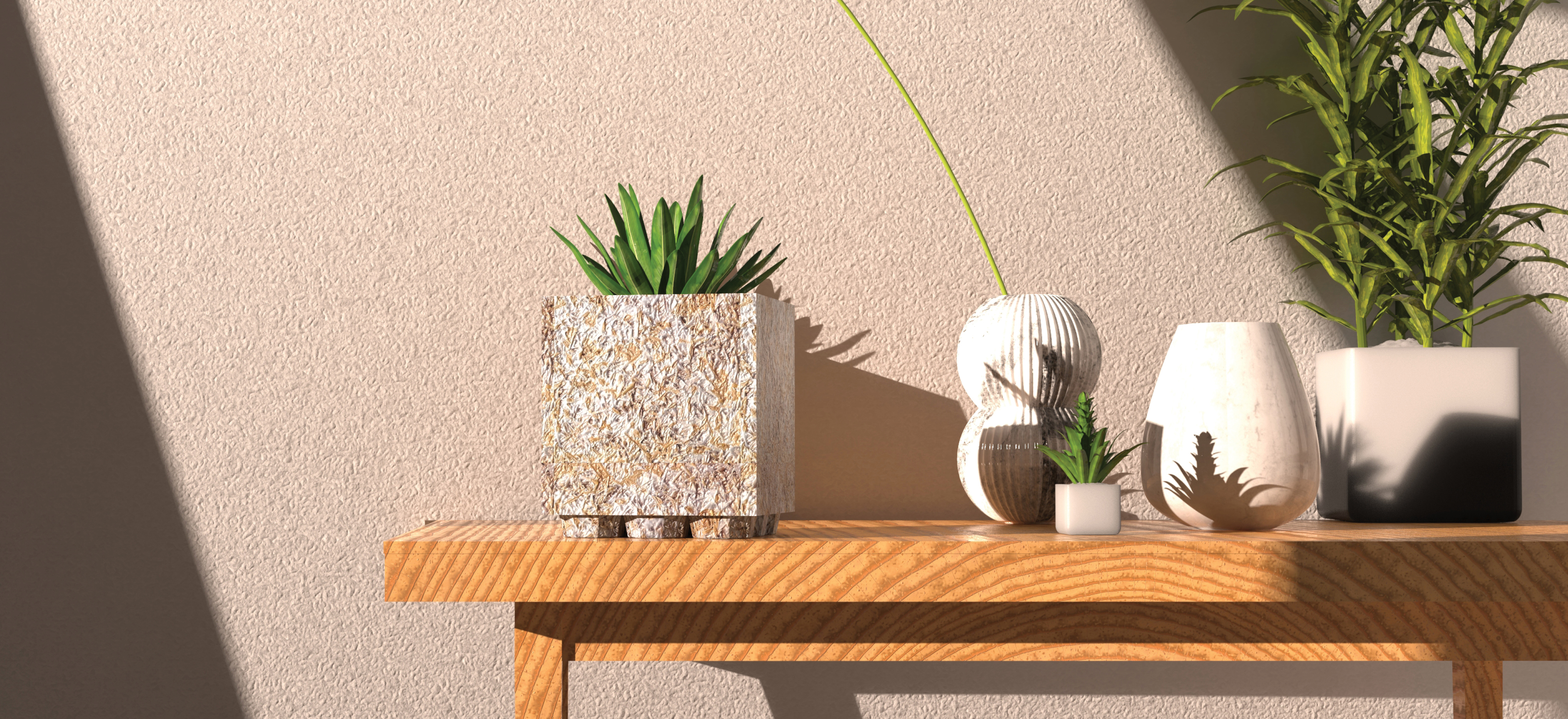
Receive our daily digest of inspiration, escapism and design stories from around the world direct to your inbox.
You are now subscribed
Your newsletter sign-up was successful
Want to add more newsletters?

Daily (Mon-Sun)
Daily Digest
Sign up for global news and reviews, a Wallpaper* take on architecture, design, art & culture, fashion & beauty, travel, tech, watches & jewellery and more.

Monthly, coming soon
The Rundown
A design-minded take on the world of style from Wallpaper* fashion features editor Jack Moss, from global runway shows to insider news and emerging trends.

Monthly, coming soon
The Design File
A closer look at the people and places shaping design, from inspiring interiors to exceptional products, in an expert edit by Wallpaper* global design director Hugo Macdonald.
Created as a prize for students and ideas around utilising ‘local woodland resources to stimulate inclusive and sustainable economic activity, ‘A New Leaf' has been a highlight at the 2021 Royal Society for the encouragement of Arts, Manufactures and Commerce's RSA Student Design Awards roster. The honour, which is sponsored by award winning furniture designer John Makepeace with support from Woodland Heritage, includes a cash prize and an opportunity to celebrate innovative designs that push the boat out for sustainability; and this year's winners have just been announced by the RSA.
Split between two joint winners, both design students, the award this year went to Harry Peck for his sustainable timber range ‘Raw Furniture', which has been grown and crafted locally in Cornwall; and Marianna Lordou, who created ‘Potium', an inventive biodegradable plant-pot made from myceleum from converted infected waste produced as a response to tree disease Phytophthora Ramorum. Both proposals honour the competition's requirements for imagination, functionality, and systems thinking – all key aspects in making a crazy idea, not only a life-changing reality that helps humans and planet, but a feasible business too.
The winning designs impressed the judging panel with their consideration for sustainability, sharp design and use of local resources, in particular forests, supporting communities and protecting woodlands.
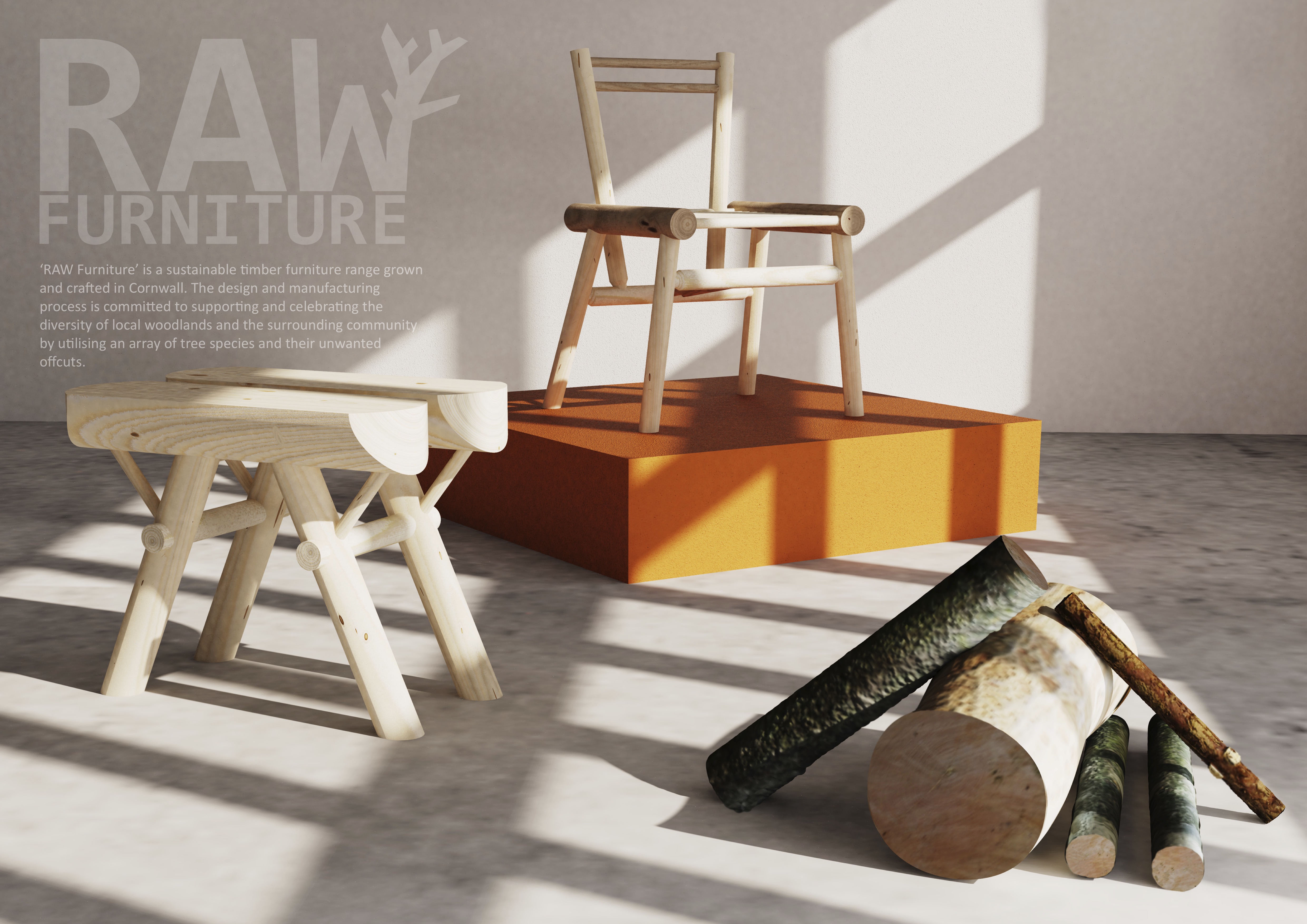
A New Leaf winner: ‘Raw Furniture'
‘During my senior year in high-school, I couldn't decide what to study at university: I had a deep passion for biology, as well art and design. This brief allowed me to combine both of those passions together. By integrating live organisms such as mycelium into my design proposal, I have come to the realization that design is everything, and involves various different fields and complex systems. I'm proud to have combined bio-tech and design to propose a solution to pressing societal and environmental issues, and I aim to embrace this multi-disciplinary approach to my designs in the future,' says Lordou.
Product design student Zil Shah scooped a High Commendation with IMLI, a sustainable material alternative made out of discarded tamarind shells and seeds. Looking sleek and modern, the sample proposed – a hanger, aimed at reducing waste from single-use hangers in fashion retail – also aims to raise awareness around the hardships involved in farming minor forest products.
The two RSA Student Design Awards winners will split a prize of £2,000. ‘I am hoping to volunteer in a refugee camp in Greece this summer in a workshop to teach the refugees basic carpentry skills,' says Peck. ‘Currently the workshop has limited tools and equipment, so I am hoping to put the money towards some new machinery.'
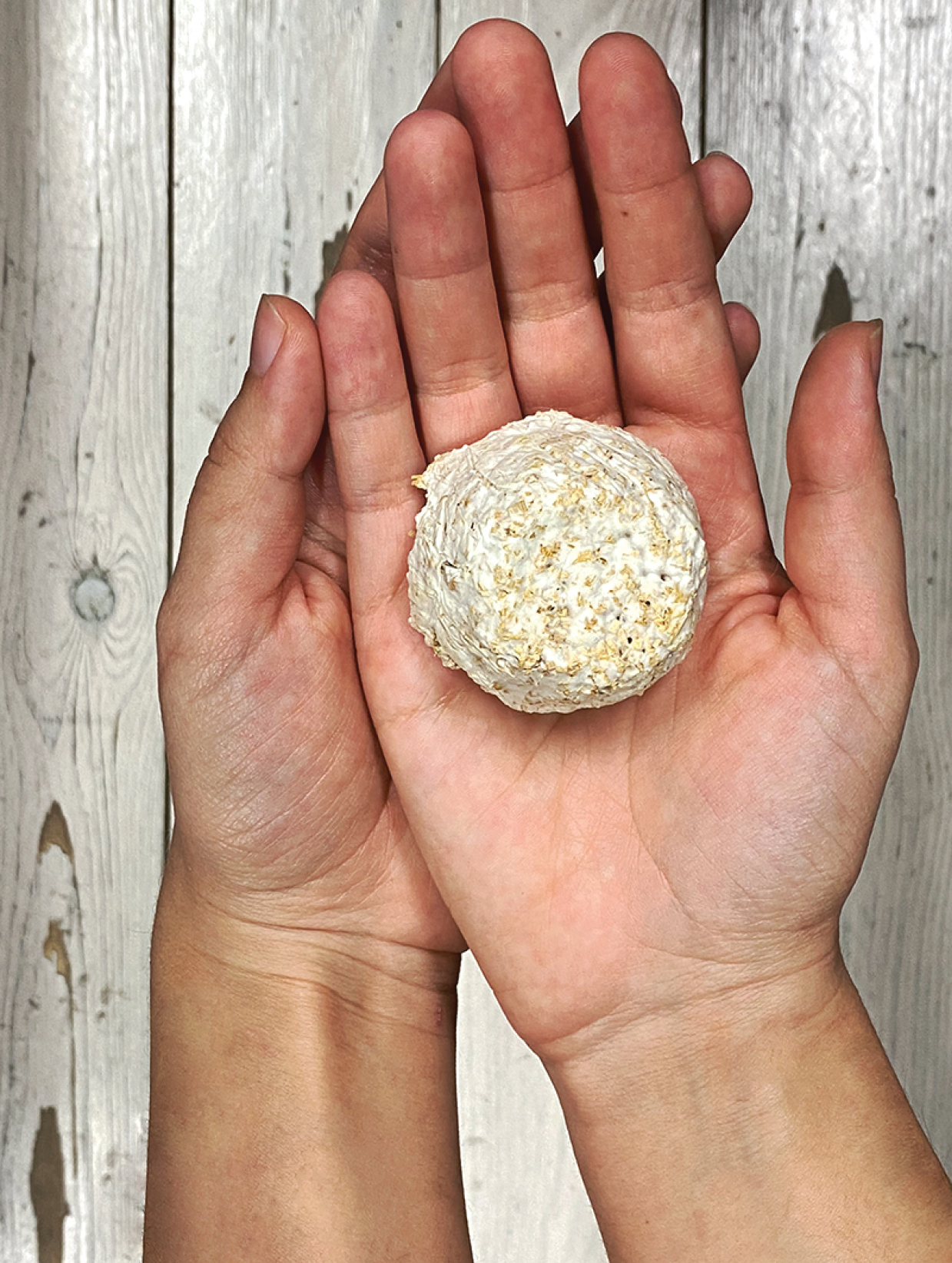
The raw material used to make ‘Potium’, the bio-degradable plant pot winning design

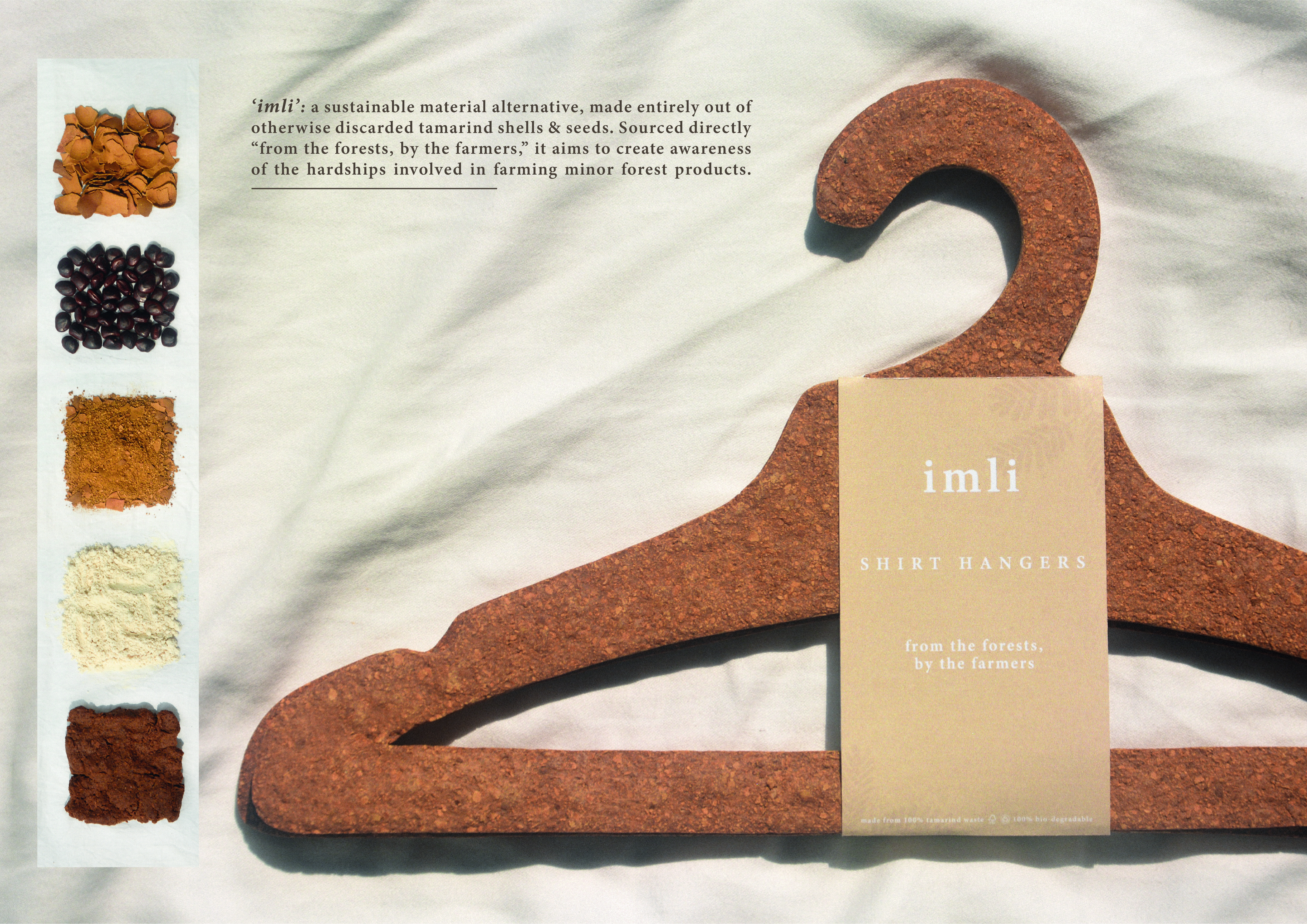
‘IMLI’, a material created using tamarind shells and seeds, won a High Commendation
INFORMATION
Receive our daily digest of inspiration, escapism and design stories from around the world direct to your inbox.
Ellie Stathaki is the Architecture & Environment Director at Wallpaper*. She trained as an architect at the Aristotle University of Thessaloniki in Greece and studied architectural history at the Bartlett in London. Now an established journalist, she has been a member of the Wallpaper* team since 2006, visiting buildings across the globe and interviewing leading architects such as Tadao Ando and Rem Koolhaas. Ellie has also taken part in judging panels, moderated events, curated shows and contributed in books, such as The Contemporary House (Thames & Hudson, 2018), Glenn Sestig Architecture Diary (2020) and House London (2022).
